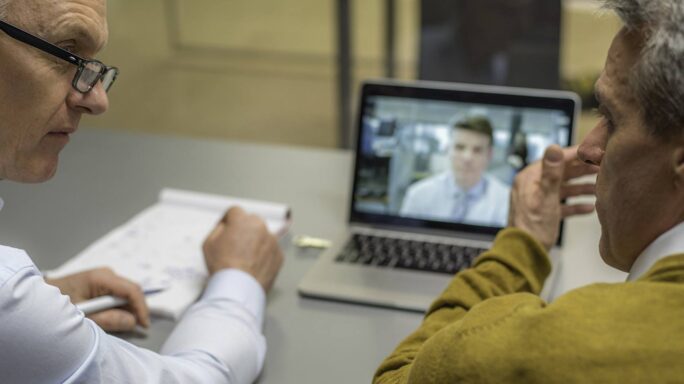Editor’s picks
Curiosity killed the accountant
The most successful accountants are those who approach the world as a child would. They’re curious about their surroundings, ask questions, and adapt quickly and easily to change.

The most successful accountants are those who approach the world as a child would. They’re curious about their surroundings, ask questions, and adapt quickly and easily to change. This mindset not only makes them better accountants but also helps them to understand and keep track of their clients’ industries, as well as global trends.
Yet the majority of accountants today lack the confidence to adopt this mindset shift. This is preventing them from becoming the trusted advisors their clients desperately need. As a result, they undersell themselves and risk becoming redundant, as technology advancements make it easier for anyone to crunch the numbers.
This is the view of Brandon Rajah, director of Trailblazers Accountants and Northern Region Chair of the South African Institute of Professional Accountants (SAIPA), speaking in the latest episode of the Sage #NextGenAccounting podcast.
No longer bean-counters
The accounting profession – and the tools that enable it – have evolved, says Rajah. Historical reporting, while still necessary, is becoming less important. Today, business owners need someone who can help them prepare their business for what comes next.
“It’s like driving a car,” says Rajah. “You have to check your rear-view mirror regularly but there’s little you can do about what’s happening behind you. The rear-view mirror occupies a small portion of your vision – and for good reason. You should be focusing on the windscreen, on what’s happening in front of you. You should be aware of what’s going on around you and ready to react to changes in your environment, like a robot turning green or a car skipping a stop street.”
Many accountants are still preoccupied with what’s happening in the rear-view mirror, he says. Yet business owners don’t need to be reminded about what’s already happened. They can’t change yesterday’s sales figures and, chances are, they already have the historical data at their fingertips.
Tools do not a craftsman make
That’s because accounting software has become so easy to use that businesses don’t need to hire someone to balance the books anymore – they can do it themselves. In fact, many tools do a lot of this processing automatically without any human intervention.
So why are accountants still so fixated on the tools? It comes down to a lack of confidence, says Rajah. “A hammer and a saw by themselves won’t build a cabinet. It’s how I use those tools and apply my own skill that gives me the end result. Tools are enablers, but they won’t do the work by themselves,” he says.
The point is this: businesses already have the tools in the form of accounting solutions. What they don’t have, is the skill and knowledge to use those tools to achieve a specific end result. This could be surviving an economic downturn, knowing which markets to target next, or optimising a business’s budget for the next six months.
This is where accountants need to step in, says Rajah.
Dig deep into clients’ businesses
Just as technology and industries are constantly evolving and adapting to changes in the environment, so should accountants.
“You can’t be an advisor if you have your head in the sand. You need to turn on your radar and become more aware of what’s happening, not only in your clients’ businesses but in their industry, the local economy and the world. If you have a few retail clients, create a news alert that delivers industry news to your mailbox every morning; attend industry conferences; deeply understand the internal factors that affect their businesses, as well as external forces they have no control over, like the exchange rate, strikes in the logistics industry, or increases in the fuel price. When you understand what’s happening now and what’s likely to happen in future, you’re better positioned to advise your clients about how to react,” says Rajah.
A study by the International Federation of Accountants found that accountants are the most trusted advisors to Small and Medium Businesses. Yet, to be in a position to advise, you need to come from a position of knowledge.
“It’s not the strongest who survive; it’s the curious. The ones who ask the right questions, who experiment, who explore the unknown, who absorb everything around them – much like children do,” says Rajah.
The best accountants do all this but go a step further to help their clients understand what this change means for their businesses, and how they can adapt.
Mindset shift
To become trusted advisors, accountants should become relentless in their pursuit of knowledge, says Rajah. It’s not enough to be adept at an accounting package. Accountants need to apply the results produced by the software to what’s going on in the world and figure out how their clients can deal with future disruption.
“Accounting practices need to adapt to these new customer demands. If they’re not sure how, they should consider hiring younger talent, who are used to change and better able to adapt. They bring innovation, creativity and curiosity to the industry and could be just what an established firm needs to get out of a rut.”
Rajah cautions, however, that accounting graduates should not be fooled into thinking that they have the most recent knowledge.
“Yesterday’s knowledge will not help with tomorrow’s problems. Learning doesn’t end when you finish college. It never ends. The sooner novice and experienced accountants commit to lifelong learning, the better advisors they’ll become.”
One last, underrated skill that Rajah touches on is the power of human connection. Being able to really listen to clients and hold engaging face-to-face conversations is a rare but valuable skill for accountants.
“We forget that the work we do impacts people’s lives. Our clients aren’t businesses. They’re people, with families and bonds to pay. We help them to look after those interests by being proactive, foreseeing what might happen and preparing them for action. And that’s something technology can’t do.”








Good morning,
We are a professional regulatory body in Malawi using Sage Evolution software.
We would like to pay our annual renewal license fee which expires soon. Kindly advise the cost and the payment method.
Hi Mwizayekha, thanks for messaging us. I have shared your contact details with our renewals team to get in touch with you.
Regards, Mongezi
Hi Viwe
Thanks for your comment. You can access Sage Q&A Live Monday to Friday 8 am to 4 pm here, where you can chat live with our panellist who will answer any of your Sage Pastel Xpress questions via chat, verbally or through demos. You can also watch how the Q&A Live works here.